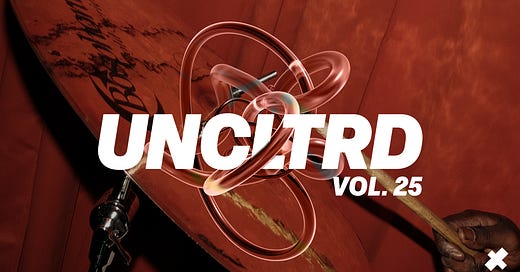Amid a sea of ‘permanently closed’ signs and newspapered windows, London's live music scene is struggling. You might have felt this through seeing fewer buskers when walking down Southbank, or you when your ears aren't met the muffled tones of a saxophone as you glide down Brick Lane on a Friday night. As a country, when we're hurting economically, the music industry is normally one of the first places we feel it. In 2023, 31% of the UK's grassroots music venues were unable to cope with soaring rental prices, and were forced to shut down. Small venues can't afford to be in the big city anymore, and so are squeezed out, leaving only the monoliths left with skin in the game. Small music venues don't just act as spaces for creativity, they're also social hubs to meet new faces. Without these third spaces, people have fewer areas to make new connections, leading to a butterfly effect of reduced collaboration, furthering isolation and stifling creativity.
However, with every suffocating action, there is a resistant reaction. This can specifically be found in London’s jam scene. A jam is a collection of live musicians, coming together to play with no plan, no creative barriers and often no knowledge of the people they’re playing with. It is experimentation in its purest form. A concept as old as music itself, London is rediscovering and utilising jam nights as a way to meet people with a likeminded interest for the spontaneous.
“Whenever I come here, I just get to see some lovely people, jam with some lovely people and meet some new people as well, it’s family.” - Francis, 2024
Here, musician and audience member, Francis, is speaking about one jam in particular, hosted by The Five Points Project. A live music promoter and artist incubator in London, run by Max Riby-Williams, James Lear and Madu Gadzama, their jam takes place every month in the heart of Brick Lane. Accompanied by other jam promoters like Audio Sync, Donut Jam, Orii Jam and many others, London is working hard to ensure the foundation of the music industry is held up.
“There is no such thing as a mistake when you’re jamming. Every off beat is just a new avenue to explore and dive into. You can also see this energy is reciprocated by the crowd, who use this sentiment to ease their anxieties and connect with new faces. Audience members return monthly, building those acquaintances into blossoming friendships.” says Max.
Unlike the crowd at the headline show for your favourite artist, where the line between audience and stage is very clear, this line is blurred at a jam, where musicians in the audience are jumping on stage mid-song to swap with the incumbent keys player in a flurry of creative chaos. There’s a certain message of equality that warms the space for this reason; no single person is heralded over another.
***Sidenote*** This article is part of Truant’s new magazine! Want to see our 2025 cultural predictions? Sign up here to pick up a digital copy of ‘Conversations on Culture’!
The problem lies in the fact that in 2024, a grassroots music venue closed every fortnight (Mixmag). Typically the spaces where jam sessions are held, when these venues are forced to shut, the butterfly effect is significant. New musicians don't have a place to cut their teeth, inequality increases and our music scene becomes more homogenous as we don't have fresh talent pushing the sonic boundaries. Artists like Ed Sheeran, Nubya Garcia, Ezra Collective and Kokoroko, who were born out of this scene, contributed to the £7.6 billion the music industry fed into the economy in 2023. Although this number increased by 7.4% from 2023 to 2024, inequality has only become more extreme.
Some brands have taken matters into their own hands, looking to do their collective bit to aid a struggling scene. In 2024, Studio Monkey Shoulder & Worldwide FM announced they will be offering £10,000 to five music communities across the globe. Similarly, Pirate Studios have their 'Studios For All Fund'. Developed in collaboration with Small Green Shoots and backed by The National Lottery, they provide free studio time to charities and organisations that support disadvantaged individuals through music. We Out Here Festival is also doing their bit, setting up their Future Foundations programme in 2024, an incubator scheme for the next generation of grassroots music event promoters.
In 2024, a grassroots music venue closed every single fortnight (Mixmag).
Brands like these have spotted a real opportunity for mutual benefit. They've isolated a problem that exists within their world and have done something about it. Through properly engaging with their culture, they draw more people into their ecosystem and thrive as a result. There are normally many options for this kind of synergetic relationship to happen, it just requires the brand to make the first move.
It's not just up to the brands though, change must also come from the government. The Creative Industries Minister recently announced a new policy to combat this issue, imposing a voluntary levy on tickets to stadium and arena tickets, reallocating the funds raised back into grassroots venues. These larger venues must enact the policy voluntarily to their audience, or face a statutory levy themselves. Whether this will help save a struggling grassroots music scene, or whether a more enforceable method will be required, time will tell.
Thanks for reading! Feel free to check out the rest of articles here. If you have any questions on how you can apply these ideas to your brand, please feel free to reach out to us at hello@truantlondon.com. Till next time x






